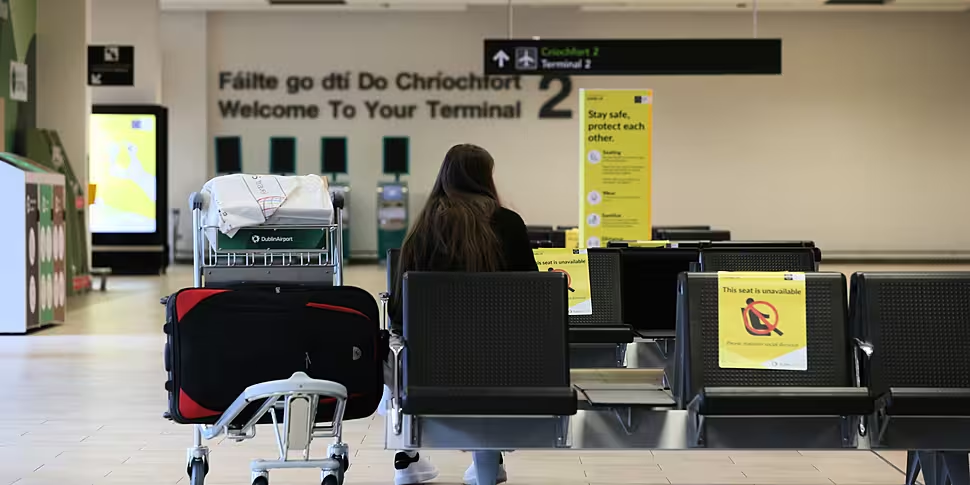Professor Sam McConkey says mandatory self-quarantine regulations for those arriving into Ireland are 'intrinsically leaky' and too late.
Health Minister Stephen Donnelly has signed regulations that introduced a system of mandatory quarantine for all arrivals into the State.
The regulations give effect to the recent Government decision to implement mandatory quarantine at home.
Professor McConkey is head of the department of International Health and Tropical Medicine at the Royal College of Surgeons in Ireland (RSCI).
He told Newstalk Breakfast this is a good initiative, but it is too late.
"My take is that it's a step in the right direction but... this is a bit too weak.
"I think we should have done this last February or March of 2020, and that would probably have limited the pain that we had".
He suggested inspections, offering in-house PCR testing, would be more helpful than Gardaí calling to people's homes.
"Offering people in-house PCR testing on day five, seven, ten - someone could come to the house and perhaps offer a test.
"That's partly for support because it's difficult to self-isolate, but also it gives useful information about whether those people are positive.
"If they are, then the people living in the house and the people immediately around them should be swabbed as well".
'Plan for the next pandemic'
Prof McConkey suggested the system, as it stands, is "an invitation to leakiness".
"This law as it's framed, in my view, is intrinsically leaky - we're not leaky by some dint of our character or by our personality, we're leaky because we have laws like this that allow leakiness".
He suggested that an executive group should be set up to deal with any such future pandemics.
"Unfortunately last November 2020, when we heard there's vaccines coming, we all thought 'the vaccine would solve this problem' so let's sort of party through December and the vaccine will solve us [sic] in January.
"And we all realise that was wrong".
"As an alternative to single item, simple solutions that don't work I believe strongly... we need a national population health executive team that can really look at all the aspects of outbreak management, outbreak detection, outbreak control and pandemic management".
He said this could deal with all health aspects, apart from COVID-19.
"You know how BP have a plan in place for, if there's oil leaking in the bottom of the sea, that they've got a plan to fix it cause they've had that before.
"We in Ireland need a plan for the next pandemic".
Under the new regulations, passengers who arrive from any destination must quarantine for 14 days at the address on their Passenger Locator Form.
Penalties for non-compliance include a fine of up to €2,500, six months in prison or both.
There are also limited exemptions from quarantine for essential reasons, such as workers for repair and maintenance of critical infrastructure, but only as "strictly necessary."
Additional travel restrictions may also apply to so-called 'Category 2 states' - such as Brazil and South Africa - where there is "a public health risk due to the presence of variants".
Minister Donnelly can designate these countries on the advice of the Chief Medical Officer, Dr Tony Holohan.
Travellers from these areas must observe the full period of isolation.
PCR tests
The regulations also extend the mandatory requirement for all arriving passengers to have a negative PCR test, and it is an offence not to have evidence of this test.
While those who travel into Ireland via Northern Ireland will also be required to have a not-detected PCR test result, and to observe the statutory quarantine regime.
On Thursday, Minister Donnelly said: "The clear Government and public health advice is that everybody should avoid non-essential travel completely.
"Last night, I signed additional regulations that puts mandatory quarantine at home on a statutory footing. All travellers into the country must now adhere to staying at home and enforcement will be a matter for An Garda Síochána."
"Additionally, our public health advice is that people subjected to mandatory quarantine should self-isolate within their homes to assist in protecting those around them.
"Further work on additional legislation to implement mandatory quarantine at a designated facility for those arriving from countries with variants of concern, such as Brazil and South Africa is being progressed and will be implemented as soon as possible."









